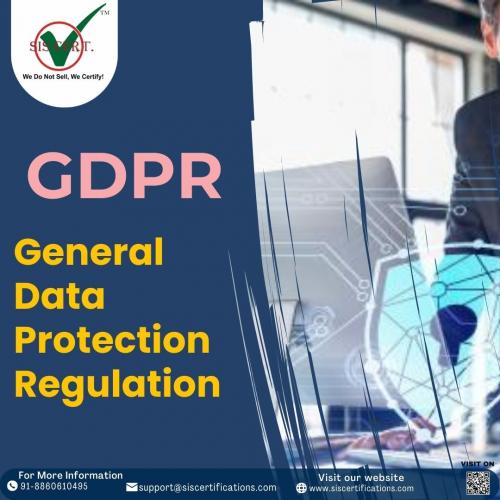GDPR Compliance in the UK: Certification Process Explained

GDPR (General Data Protection Regulation) compliance is essential for businesses operating in the UK to ensure the protection of personal data and maintain trust with customers. While GDPR itself doesn't mandate certification, businesses often seek certification to demonstrate their commitment to data protection.
Here's an overview of the certification process for GDPR compliance in the UK:
Preparation and Assessment: Before pursuing certification, businesses should ensure they have robust data protection policies and practices in place. This involves conducting a thorough assessment of current data processing activities, identifying potential risks, and implementing necessary controls to mitigate those risks.
Selecting a Certification Body: Organizations seeking GDPR certification should choose an accredited certification body that specializes in data protection. Certification bodies must be accredited by the UK's national accreditation body, the United Kingdom Accreditation Service (UKAS), to ensure credibility and impartiality.
Gap Analysis: Many certification bodies offer gap analysis services to help businesses identify areas where they may fall short of GDPR requirements. This involves reviewing existing data protection measures against the GDPR's provisions and identifying areas for improvement.
Documentation Review: The certification process typically involves a thorough review of the organization's documentation related to data protection, including policies, procedures, and records of data processing activities. Certification bodies assess whether these documents align with GDPR requirements.
On-site Audit: In addition to reviewing documentation, certification bodies may conduct on-site audits to assess the implementation of data protection measures in practice. During the audit, the certification body evaluates how well the organization's processes and controls comply with GDPR requirements.
Remediation and Improvement: Based on the findings of the assessment and audit, organizations may need to address any identified deficiencies and make improvements to their data protection practices. This may involve updating policies and procedures, providing additional staff training, or implementing new technical controls.
Certification Decision: After completing the assessment and audit process, the certification body makes a decision regarding certification. If the organization meets the requirements of the GDPR and the certification scheme, they will be awarded a GDPR certification.
Maintaining Certification: GDPR certification is not a one-time achievement; it requires ongoing commitment to maintaining compliance with the regulation. Organizations must continue to monitor their data protection practices, address any changes in regulations or business operations, and undergo regular audits to maintain certification.
Publicizing Certification: Once certified, organizations can publicize their GDPR compliance status to demonstrate their commitment to data protection to customers, partners, and regulators. This can enhance trust and credibility with stakeholders and differentiate the organization in the marketplace.
By following these steps and working with accredited certification bodies, businesses in the UK can navigate the GDPR certification process effectively and demonstrate their commitment to protecting personal data.
Advertise on APSense
This advertising space is available.
Post Your Ad Here
Post Your Ad Here
Comments